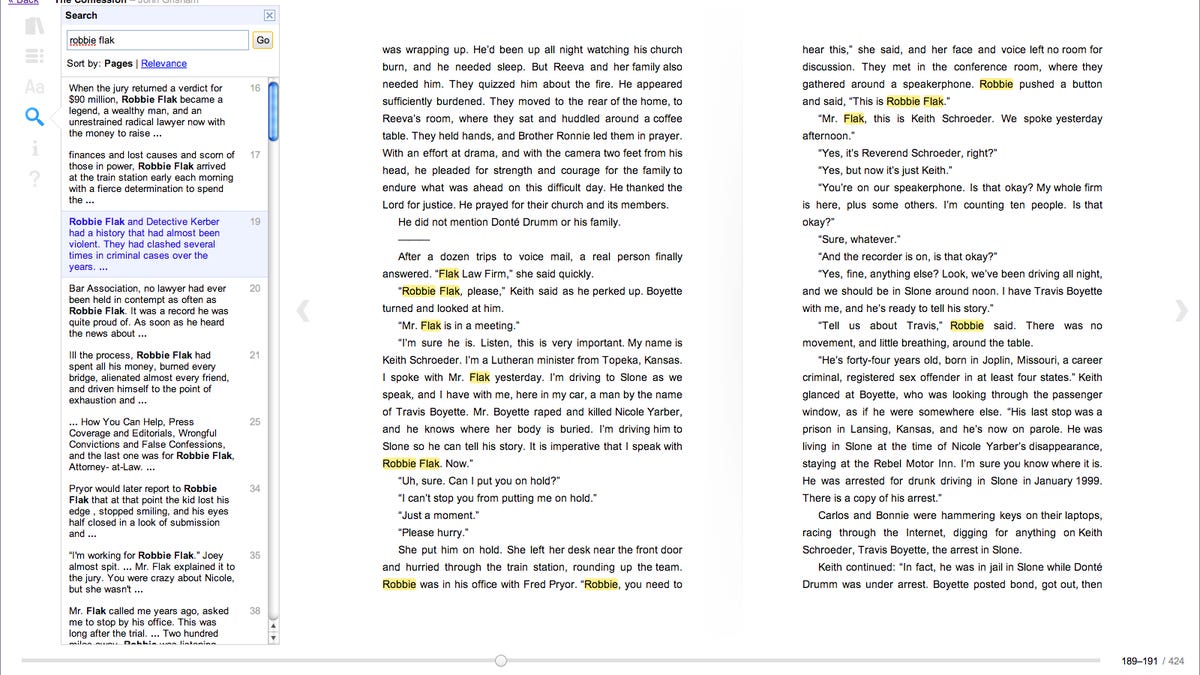Google's Web e-book store ready for chapter 1
It's getting to be a crowded market for e-books, but Google's long-awaited entry into this space with the Google eBookstore could make room for another.

Google is finally ready to get into the bookselling business, one Web browser at a time.
The Google eBookstore is set to launch in the U.S. this morning after months of planning on Google's part to be the latest entrant into the hot market for e-books. Google has cut deals with many top-tier publishers, including Random House, McGraw Hill, Simon & Schuster (a division of CBS, which also publishes CNET), Penguin Books, and MacMillan. And it will have "hundreds of thousands" of in-print e-books to sell today along with the huge number of public domain books that Google has already scanned through its Google Book Search project, for a total of just over 3 million titles, said James Crawford, director of engineering for Google Books.
Formerly known as Google Editions when in the planning stages, the Google eBookstore is notable because of its Web-based approach to e-book selling. Customers will be able to buy books through their Google accounts and access them on just about any device with a modern Web browser, Crawford said. The company also plans to develop e-reader applications for both Apple's App Store and the Android Market that will sync with a customer's account, allowing you to purchase a book on your home PC, start reading it on your phone on the way into work, and sneak in a few pages at lunch on your work system without having to re-discover your place each time you log in, he said.
"The idea is to never have to wonder where you are," Crawford said of the autosync feature. Books will be locked to individual Google accounts, however, and protected by Adobe's ACS4 technology.
Google's books should also work on several e-reader devices that support Adobe's technology, like Barnes & Noble's Nook or Sony's Reader, with a notable exception: Amazon's Kindle doesn't support ACS4, Crawford said.
Google has also cut deals to let other bookstores sell electronic copies of Google's inventory, including famed Portland, Ore., bookseller Powell's, Alibris, and the American Booksellers Association, which helps indie bookstores get online, said Amanda Edmonds, director of strategic partnerships for Google Books. Goodreads, a book-oriented social-networking site, will also serve as a Google eBookstore affiliate, offering users links to the store to buy books they are discussing.
As always, pricing is key to any new retail venture. Crawford said Google intended to be "comparable" to other e-book stores, such as Amazon's or Apple's.
"We've set up a pricing algorithm to be competitively priced with the going rate in the market," he said. "We're not trying to buy our way into the market by (underpricing), but we don't want anybody to say that we have higher prices."
Google's been talking about building a digital bookstore for years, but its entire Google Book Search project has been shrouded in controversy over the proposed settlement it brokered with groups representing authors and publishers that, if approved, would give it the right to sell the out-of-print yet copyright-protected books it has scanned from library partners. Final approval of that settlement has now dragged on for years, with a decision following a "final hearing" in February--that had itself had been delayed several times--having languished for months.
However, the eBookstore as launched today really has nothing to do with that controversy: Google is only selling books for which it either has an explicit agreement with the clear rights-holder of the book, or it's a title that has passed into the public domain, Crawford said. Google has attempted to drum up support for its settlement by arguing that authors whose books have gone out of print will have a chance to earn revenue from a digital store that wasn't possible before Google made a digital copy, but until the settlement is approved it doesn't have the legal clearance to go ahead and sell those books.
The eBookstore will live as a link off the main Google Book Search page, where visitors will be asked if they are interested in searching or buying. Previews of millions of books can be found in Google Book Search, but until today Google had been directing those looking to purchase a copy to other book stores.